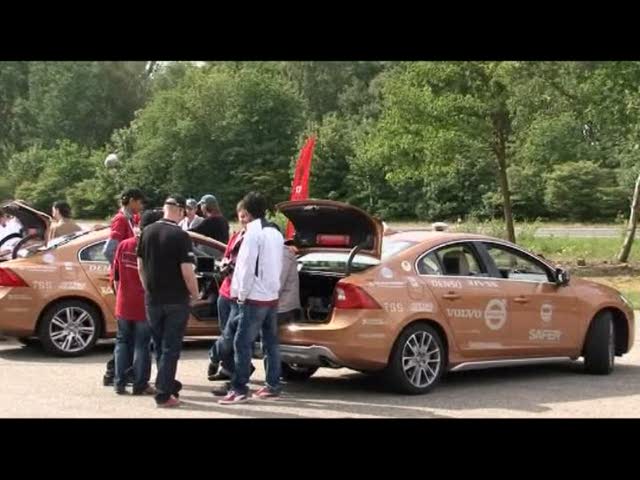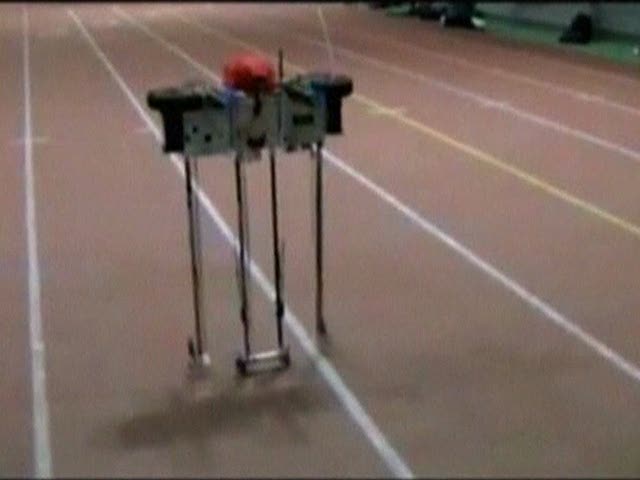Microsoft to pay for grants at MIT.
Published:
7 October 1999 y., Thursday
Microsoft has unveiled a partnership with the Massachusetts Institute of Technology (MIT) in which the No.1 software maker will donate $25 million to the school for technology research grants. "Project I-Campus" will be based at MIT and involve MIT faculty and students and Microsoft researchers. The program is the largest educational research donation ever made by Microsoft. The funds will be awarded by a committee of Microsoft executives and MIT professors and administrators. The grant is the latest in a growing number of collaborations between schools seeking additional funding and corporations eager to expand their products and technology into classrooms and research laboratories. "Microsoft views education as one of the great frontiers where information-based services and advanced technology can improve people_s lives," said Richard Rashid, vice president of Microsoft_s research division. Three Microsoft executives will sit on the six-member committee that awards the grants, giving the Redmond-based software giant a say over what research is funded. Funds won_t be funneled to projects that support only Microsoft products. The alliance will begin by researching how information technology can improve three MIT programs, including a graduate-level engineering course taught simultaneously in Singapore and at MIT. The project also is expected to focus on developing tools to aid student learning from a distance, Web-based virtual museums and "global classrooms." Microsoft Chairman Bill Gates has made education a top philanthropic goal. Gates pledged last month to donate $1 billion for college scholarships for minority students. The "Gates Millennium Scholars Program" will provide 1,000 scholarships each year for 20 years to Asian-American, African-American, Hispanic and Native American students.
Copying, publishing, announcing any information from the News.lt portal without written permission of News.lt editorial office is prohibited.
The most popular articles

The European Commission announced today the award of three of the six contracts for the procurement of Galileo’s initial operational capability.
more »
 In a world first, doctors in Austria have amputated the arms of two young men and replaced them with bionic prosthetics. The decision to amputate was made after the men had irreversibly lost all movement in their hands.
more »
In a world first, doctors in Austria have amputated the arms of two young men and replaced them with bionic prosthetics. The decision to amputate was made after the men had irreversibly lost all movement in their hands.
more »
 An ultra-realistic robot, known as a geminoid, is helping psychologists test how we relate to machines...
more »
An ultra-realistic robot, known as a geminoid, is helping psychologists test how we relate to machines...
more »
 Scientists from the University of Sheffield have developed pigment-free, intensely coloured polymer materials, which could provide new, anti-counterfeit devices on passports or banknotes due to their difficulty to copy.
more »
Scientists from the University of Sheffield have developed pigment-free, intensely coloured polymer materials, which could provide new, anti-counterfeit devices on passports or banknotes due to their difficulty to copy.
more »
 iRobot Corp announced plans to create Android applications for the iRobot Ava mobile robotics platform.
more »
iRobot Corp announced plans to create Android applications for the iRobot Ava mobile robotics platform.
more »
 When robots talk to each other, they're not generally using language as we think of it, with words to communicate both concrete and abstract concepts.
more »
When robots talk to each other, they're not generally using language as we think of it, with words to communicate both concrete and abstract concepts.
more »
 Using laser and nanotechnology, scientists in Chicago have been able go back in time and uncover how masterpieces from artists like Homer and Van Gogh might have looked like when they were first painted.
more »
Using laser and nanotechnology, scientists in Chicago have been able go back in time and uncover how masterpieces from artists like Homer and Van Gogh might have looked like when they were first painted.
more »
 Most mechanical resonators damp (slow down) in a well-understood linear manner, but ground-breaking work by Prof. A. Bachtold and his research group at the Catalan Institute of Nanotechnology has shown that resonators formed from nanoscale graphene and carbon nanotubes exhibit nonlinear damping, opening up exciting possibilities for super-sensitive detectors of force or mass.
more »
Most mechanical resonators damp (slow down) in a well-understood linear manner, but ground-breaking work by Prof. A. Bachtold and his research group at the Catalan Institute of Nanotechnology has shown that resonators formed from nanoscale graphene and carbon nanotubes exhibit nonlinear damping, opening up exciting possibilities for super-sensitive detectors of force or mass.
more »
 Automated driving systems, such as adaptive cruise control, may be the latest "must have" gizmos but the auto industry is already looking to their successor - cooperative driving - where cars communicate with each other as they go.
more »
Automated driving systems, such as adaptive cruise control, may be the latest "must have" gizmos but the auto industry is already looking to their successor - cooperative driving - where cars communicate with each other as they go.
more »
 For the past few years, researchers have been using quantum dots to increase the light absorption and overall efficiency of solar cells.
more »
For the past few years, researchers have been using quantum dots to increase the light absorption and overall efficiency of solar cells.
more »
 'Ranger' the robot has set a world record for its developers at Cornell University, by walking 40.5 miles non-stop on one charge.
more »
'Ranger' the robot has set a world record for its developers at Cornell University, by walking 40.5 miles non-stop on one charge.
more »